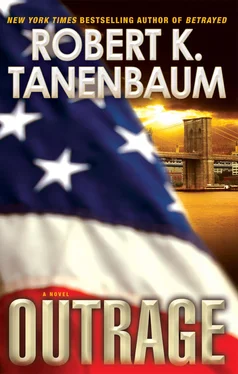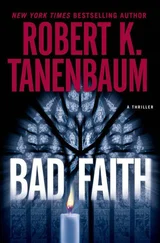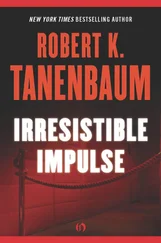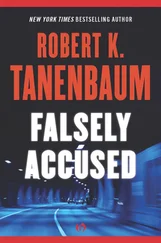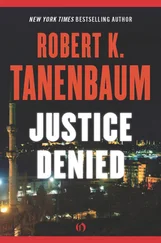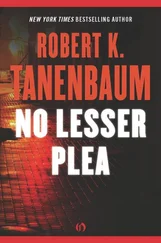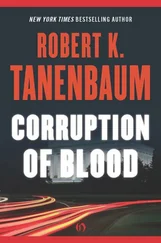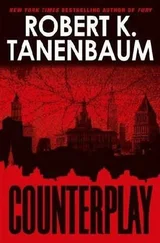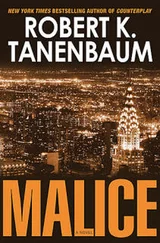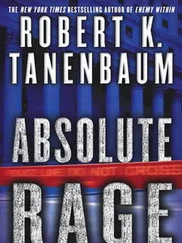Robert Tanenbaum - Outrage
Здесь есть возможность читать онлайн «Robert Tanenbaum - Outrage» весь текст электронной книги совершенно бесплатно (целиком полную версию без сокращений). В некоторых случаях можно слушать аудио, скачать через торрент в формате fb2 и присутствует краткое содержание. Жанр: Исторический детектив, на английском языке. Описание произведения, (предисловие) а так же отзывы посетителей доступны на портале библиотеки ЛибКат.
- Название:Outrage
- Автор:
- Жанр:
- Год:неизвестен
- ISBN:нет данных
- Рейтинг книги:3 / 5. Голосов: 1
-
Избранное:Добавить в избранное
- Отзывы:
-
Ваша оценка:
- 60
- 1
- 2
- 3
- 4
- 5
Outrage: краткое содержание, описание и аннотация
Предлагаем к чтению аннотацию, описание, краткое содержание или предисловие (зависит от того, что написал сам автор книги «Outrage»). Если вы не нашли необходимую информацию о книге — напишите в комментариях, мы постараемся отыскать её.
Outrage — читать онлайн бесплатно полную книгу (весь текст) целиком
Ниже представлен текст книги, разбитый по страницам. Система сохранения места последней прочитанной страницы, позволяет с удобством читать онлайн бесплатно книгу «Outrage», без необходимости каждый раз заново искать на чём Вы остановились. Поставьте закладку, и сможете в любой момент перейти на страницу, на которой закончили чтение.
Интервал:
Закладка:
No one responded, so he went on. “Detective Graziani asked a lot of leading questions, particularly when the suspect didn’t give the ‘correct answer’ to the original question or balked,” he said. “All detectives do that to an extent to flesh out the details of a confession, but not until after the suspect has given a narrative-‘Here’s where I was, what I did, how I did it’-of what happened. But here there was no narrative against which we could have sought some corroboration. In fact, more often than not, Graziani provided the answers when he asked the questions.”
Karp picked up the case file folder that was lying on his desk and turned to a page in the transcript he’d earmarked. “For instance, this is a passage where Acevedo has just told Graziani that the deceased, Olivia Yancy, was his girlfriend, which he later will admit was a lie. So Graziani asks him if he and Yancy had been having ‘kinky sex and it got out of hand.’ I’m reading now from page three of the transcript of the statement the defendant gave to Detective Graziani.
“Acevedo’s answer: ‘No. We don’t have sex.’
“Graziani’s leading question: ‘But you tied her up and put duct tape over her mouth?’
“Answer: ‘I guess.’
“Question: ‘You guess? Or you know?’
“Answer: ‘I know.’
“Question: ‘And you cut her clothes off with your knife.’”
Karp stopped reading for a moment and looked at Cohn and Davis. “I’m sure you recognize that Graziani is supplying information to Acevedo that only someone with knowledge of the crime scene would have.” When the two nodded he continued. “Graziani has just told, not asked, the suspect if he cut the victim’s clothes off her with a knife. And Acevedo answered, ‘Yes.’” Karp looked up from the transcript.
“He admitted the same things to me,” Cohn pointed out.
“You’re absolutely right,” Karp agreed. “Nearly word for word.”
“An indication of truthfulness,” Davis suggested.
“Maybe,” Karp conceded. “Or that he memorized what he was led to say.”
“I wasn’t leading him in the Q amp; A,” Cohn said, “when I questioned him.”
“You’re right,” Karp said. “Your Q amp; A was right out of the book. But it was already too late; he knew what to say.”
“He’s not like one of those guys who confesses to things he didn’t do for the publicity,” Cohn said. “He tried to run from the cops when they stopped him. And he first denied everything-the Bronx case, our case. He was trying to avoid being caught, not give himself up.”
Karp nodded. “However, he didn’t put up much of a fight. Basically, Graziani would ask a question, the suspect would answer, the detective would then tell him he was wrong and suggest what the correct answer would be, and Acevedo would agree.”
“But isn’t it normal for a perp to lie the first time they’re asked?” Cohn asked.
“And maybe he’s just not a good liar, or he feels guilty,” Davis said. “So all it takes is a little push in the right direction.”
“Could be,” Karp replied. “But there’s a difference between a push in the right direction and being told what to say. I’ve been informed that the defendant has a history of confessing to minor offenses at his school and possibly even misdemeanor vandalism.”
“That’s a long way from confessing to murder,” Cohn said.
“Right again,” Karp said. “But it’s certainly something we should have checked out. Has anybody bothered to ask Detective Fulton if he could have one of his detectives run this stuff down?”
Silence. Karp thought for a moment before continuing. “I also have a problem with Graziani lying to Acevedo about there being a witness who saw him leave the Yancy apartment building.”
“The U.S. Supreme Court has ruled that police officers can lie, or use trickery, to get a suspect to admit the truth,” Davis said. “Cops do it all the time. Such as telling a suspect that he’s been caught on surveillance video or that he left a fingerprint at the scene of the crime.”
Karp pursed his lips and looked around the room. Tommy Mack had buried his face in his hands and was shaking his head. Guma grimaced, closed his eyes, and stuck a cigar in his mouth. Fulton was watching Davis like he expected him to burst into flames. But Murrow just shot the assistant chief and Cohn dirty looks; he knew who he had to blame for the coming media storm.
Very carefully, his voice clipped and hard, Karp leaned forward to look Davis in the eye and said, “I know what the courts have ruled and that it’s common practice with cops and in a lot of DAOs, but there’s a difference between what we can get away with and what’s right. It’s not even worth the damage it will do to you at trial.”
“What do you mean?” Davis asked.
“When the detective eventually takes the stand, we have the obligation to present to the jury all the relevant facts and circumstances regarding the defendant’s confession, including the detective’s tricky tactics, if any,” Karp said. “The defense will then attempt to focus the jury on the detective’s deceit, trying to make a collateral issue into a giant big deal, maybe even the central focus. So instead of keeping the jury’s focus on the defendant’s guilt, the jurors may be led to equate the detective’s deceit with everything done investigatively. We don’t want the jurors thinking, If he was capable of manipulating the defendant into confessing with lies, what’s to stop him from manipulating us with lies?”
Davis tried to respond. “I thought our job was to get at the truth. What’s the harm if it accomplishes that?”
Karp had had enough and pounded his desk with his hand. “What harm?” he growled. “Damn it, Pat, what harm is there in lying to get at the truth? Are you listening to yourself? Lies and cheating to win a verdict are corrupting agents that eat at the foundation of the entire system. And that foundation is the public’s trust, which will be further eroded: You can’t trust cops. You can’t trust the district attorney’s office. Who can we trust?”
Pale and sweating, Davis started to mumble a reply, but Karp held up a hand. “Enough! I let this go on as a reminder that this case is a perfect example of why we bring such cases to the Monday bureau meetings, where we can ask these sorts of questions and make sure we’ve done our job professionally and thoroughly. But all of this back-and-forth now over missing narratives, leading questions, and the ethics of lying is moot. It’s yesterday’s news as far as I’m concerned.”
Standing to look out the large window beside his desk at the busy street below, Karp then turned to face Davis and Cohn. “Now, does someone want to explain to me why no one in this office bothered to corroborate the single most important piece of evidence in this case, or noticed that the investigating detective apparently had not, either?”
“Acevedo confessed that he took it from Olivia Yancy,” Cohn said weakly.
Karp glared at her for a moment before responding. “He was led to say that by Graziani and then he just repeated it to you. And nobody bothered to check it out-the only piece of evidence we had to ascertain the credibility and trustworthiness of the confession. Instead, we just went ahead and presented the case to the grand jury and obtained an indictment against Acevedo, who, as far as I can see, is an innocent man.”
“He’s not necessarily innocent because this wasn’t the ring taken from Olivia,” Davis argued. “Maybe he mixed up which ring he took from which victim.”
“Unfortunately for that theory, his story checks out,” Karp replied. “Acevedo bought it from a guy in the park who’d stolen it from a woman. And unlike our so-called evidence, this was corroborated. And the ring was the only thing that tied Acevedo to the murders of Olivia Yancy and Beth Jenkins.”
Читать дальшеИнтервал:
Закладка:
Похожие книги на «Outrage»
Представляем Вашему вниманию похожие книги на «Outrage» списком для выбора. Мы отобрали схожую по названию и смыслу литературу в надежде предоставить читателям больше вариантов отыскать новые, интересные, ещё непрочитанные произведения.
Обсуждение, отзывы о книге «Outrage» и просто собственные мнения читателей. Оставьте ваши комментарии, напишите, что Вы думаете о произведении, его смысле или главных героях. Укажите что конкретно понравилось, а что нет, и почему Вы так считаете.
